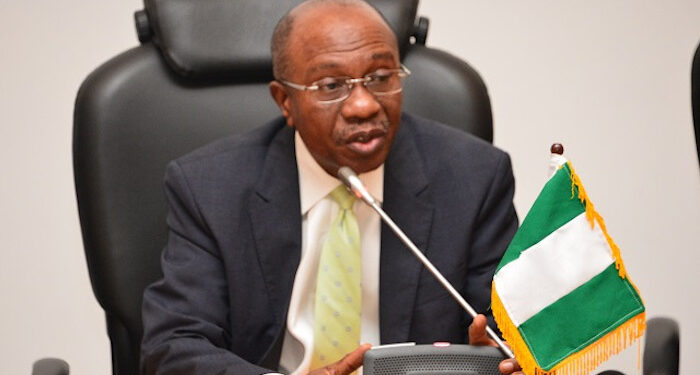In his message of benevolence at the inauguration of the Dangote refinery on Monday, Governor of the Central Bank of Nigeria (CBN) Godwin Emefiele disclosed that the Dangote Group had repaid approximately 70 per cent of the loans used to construct the refinery. Emefiele highlighted the project’s economic benefits, which include up to $30 billion in annual foreign exchange savings and an additional $10 billion in inflows.
Emefiele stated that one of the anticipated advantages of the refinery was annual savings of $25 billion to $30 billion in foreign exchange expenditures.
The governor of the Central Bank of Nigeria (CBN) noted that Dangote Group had begun repaying a portion of its commercial loans prior to the inauguration of the facility, which reflected the commercial prowess of the group and its chairman.
Emefiele added, “I am pleased to inform everyone today that, as a result of substantial repayments, the outstanding debt has decreased significantly from more than $9 billion to $3 billion.”At this juncture, I must express my gratitude to all the participating local Nigerian banks, who not only partnered with the project by providing effective financing but were also acutely aware of the project’s significance for our nation. Even when interest payments and principal repayments were due, they provided tremendous support and exceptional understanding.
Emefiele recalled that when Dangote announced his intentions for the refinery in September 2013, it was estimated to cost approximately $9 billion, of which $3 billion was projected as an equity investment by the Dangote Group and the remaining $6 billion was projected to be financed by commercial loans.
Due to a variety of factors, he explained, the project was ultimately completed for a total of $18.5 billion, with funding distributed as 50% equity investment and 50% debt finance.
The CBN governor stated, “This project provides Nigeria with substantial foreign exchange savings and fiscal relief for the federal government.” As of 2014, at least 30% of the foreign exchange required to meet Nigeria’s import requirements was spent on the importation of refined petroleum products, according to data from the Central Bank of Nigeria. According to balance of payments statistics, the cost, including goods, of petroleum product imports into Nigeria doubled over a five-year period, from approximately $8.4 billion in 2017 to $16.2 billion, indicating an annual average of $11.1 billion, before rising further to $23.3 billion by the end of 2022.
“If we continue to import petroleum at this rate, the average annual cost of petroleum imports to Nigeria could reach $30 billion by 2027. These numbers suggest that the refinery could save the country between $25 billion and $30 billion annually in foreign exchange.”
He added that these reductions would have a direct effect on Nigeria’s foreign exchange reserves by reducing the pressure on the country’s balance of payments.
Emefiele added, “This project will also contribute to the government’s fiscal operations by alleviating funding constraints for the petroleum subsidy and generating fiscal savings.”Fuel subsidies in Nigeria increased more than ninefold over a five-year period, from approximately N154 billion in 2017 to over N1.43 trillion in 2022, followed by a further threefold increase to N4.4 trillion by 2022’s end.If ineffective action is taken, this number could surpass N7 trillion within the next three years, according to a straightforward straight-line projection.Over the next five years, the Dangote Refinery and Petrochemicals could save Nigeria between N5 and N7 trillion annually in federal fiscal expenditures.”
Emefiele noted that the endeavour was one of the CBN’s many efforts to support Buhari’s economic diversification initiative.
He stated, “With your permission, I will now mention a few of the critical segments of the real estate industry in which we have implemented interventions. Real Sector Support Facility through Differentiated Cash Reserve Requirement (RSSF-DCRR) and Covid-19 Intervention for Manufacturing Sector are the two interventions used to implement the CBN Real Sector Facility. Under this facility, the CBN has disbursed N2.56 trillion to 462 initiatives in the agriculture, manufacturing, mining, and service sectors. In addition, the CBN has supported other priority sectors and segments of the economy, releasing a total of N3.60 trillion to the manufacturing sector to support domestic industrial production capacity.”The Bank has also supported infrastructural development with the sum of N2.28 trillion in order to bridge the nation’s infrastructure gap and improve access to energy for domestic production.”


